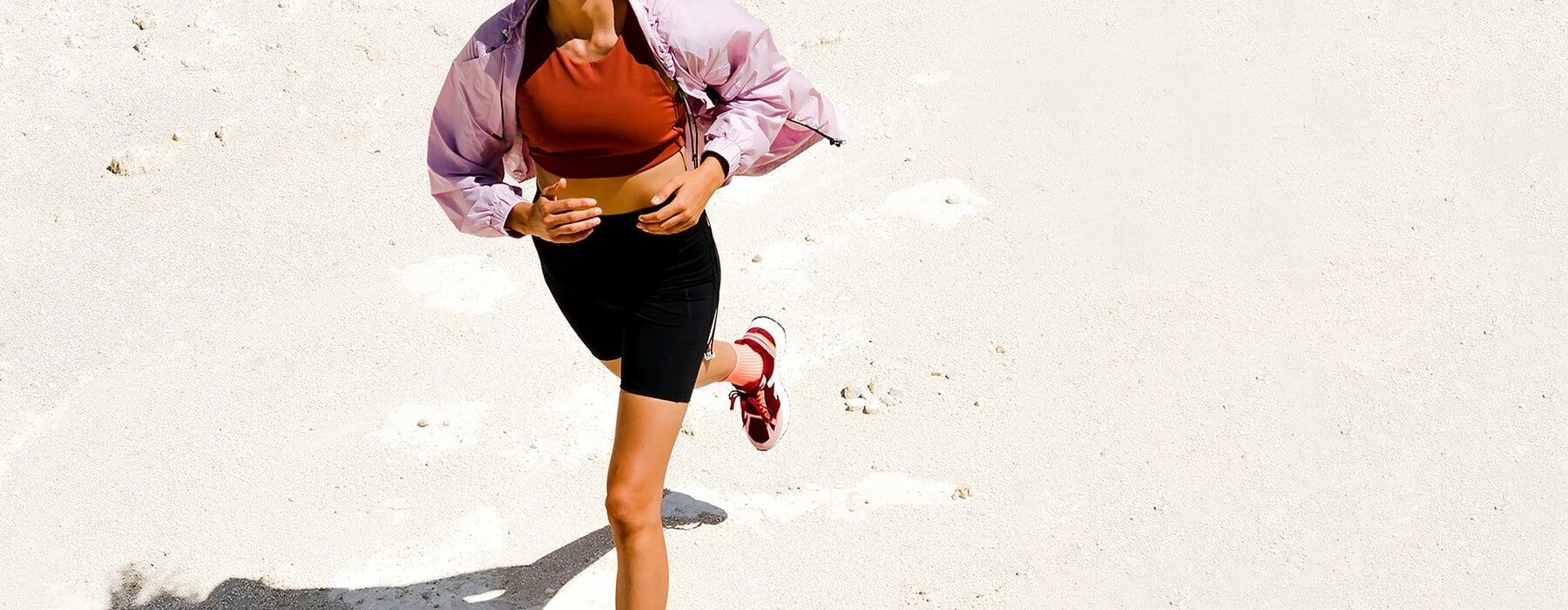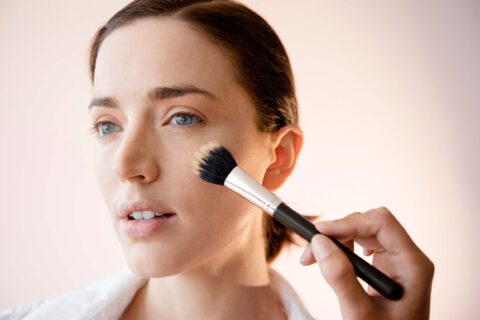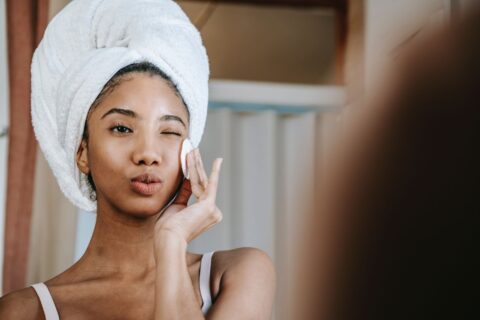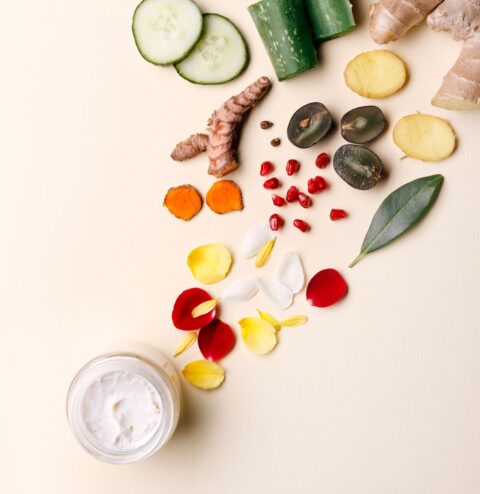Wear your sneakers till they’re falling apart, suggests Fiona Ralph, then choose new ones with the planet and fair trade in mind.
For eight years I wore the same pair of worn-out sneakers, even after the heel was partially melted when I (stupidly) dried them by a fire. Clearly I wasn’t running marathons in them, but I still made them last until they fell apart. Eventually, I got an upgrade from a friend who didn’t need her sneakers anymore. It wasn’t until I heard about Veja that I felt confident about buying a new pair, armed with the knowledge that my sneakers would be fair trade and produced from sustainable materials.
The French brand, founded in 2004, is known for its sneakers made with certified organic cotton, wild Amazonian rubber, banana oil, sugar cane, recycled plastic, and rice and corn waste. While one in three styles is vegan, Veja also uses leather that is chrome-free and from audited tanneries. (Harvesting and tanning leather has a high environmental and ethical impact, so Veja and other brands are looking more to plant- based alternatives.) The shoes are made in Brazil, with employees paid more than the living wage, and materials are sourced directly from producers (mostly in Peru and Brazil) at rates not tied to the market price. (The brand pays roughly double the market price for their organic cotton.)
Another company that has been producing better sneakers since the mid-2000s is Australian brand Etiko, the first Fair Trade-certified fashion brand in the Southern Hemisphere. As well as vegan shoes, Etiko sells vegan clothing, underwear and jandals. The sneakers are made in India, Sri Lanka and Pakistan with FSC-certified sustainable latex and GOTS- certified organic cotton. Founder Nick Savaidis is passionate about using natural materials and says his sneakers have “nothing on them that won’t break down, except for the tips at the end of the shoelaces”. Etiko also has a take-back programme that recycles worn-out shoes into outdoor furniture.
Also based in Australia is Taeger, which encourages a slow approach to fashion. Its unisex, seasonless shoes are designed in the Netherlands and handmade in Portugal from local materials.
Local label Collective Canvas was launched in 2018 by Oscar Anselmi, whose family is behind Merchant 1948 (formerly Overland). The brand uses organic cotton, natural rubber, cork and castor oil to make unisex sneakers in China in a factory where workers are paid a living wage. The company has a transparent pricing model. Last year, instead of taking part in Black Friday sales, which fuel over-consumption, the brand announced an ongoing small price increase to compensate for rising shipping costs due to Covid-19. On Black Friday, it donated this price difference, plus an additional amount, to Youthline and Lifeline.
Allbirds has taken the world by storm with its New Zealand merino wool shoes, which feature recycled- plastic laces and soles made with castor oil. Other natural materials include Tencel (made from wood pulp) and sugar cane. The business is carbon-neutral and lists the individual carbon output of each product on its website. It’s also certified as a B Corp company (as are Veja and Etiko), which means it meets high standards in social and environmental performance and public transparency. The shoes are made in South Korea, China and Vietnam.
Allbirds is passionate about sharing its sustainable ethos and is currently collaborating with Adidas to create a sports performance shoe with the lowest-ever carbon footprint. Although it may sound a surprising collab, the brands believe that working together is the quickest way to fight climate change.
Adidas, which also owns Reebok, is doing better than many other big sneaker brands in regards to sustainability and ethical production, with projects at all their facilities to improve wages and sustainable materials used in a number of lines. In 2019 the brand introduced Futurecraft Loop, a 100 percent recyclable, closed-loop sneaker that can be returned and made into a new shoe. And in 2020, it launched Clean Classics, a line of vegan and low-waste versions of its Originals shoes, made from recycled polyester, natural and reclaimed rubber, with paper laces. Since 2004 it has also collaborated with Stella McCartney, known for her ethical and vegetarian principles.
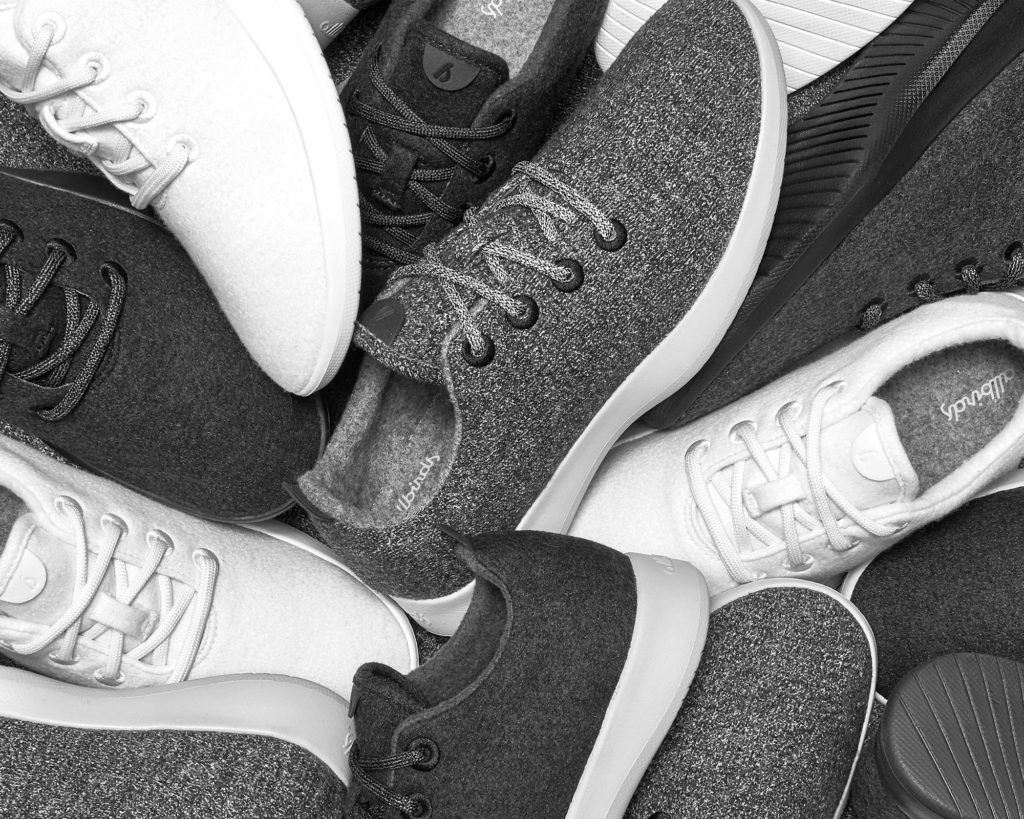
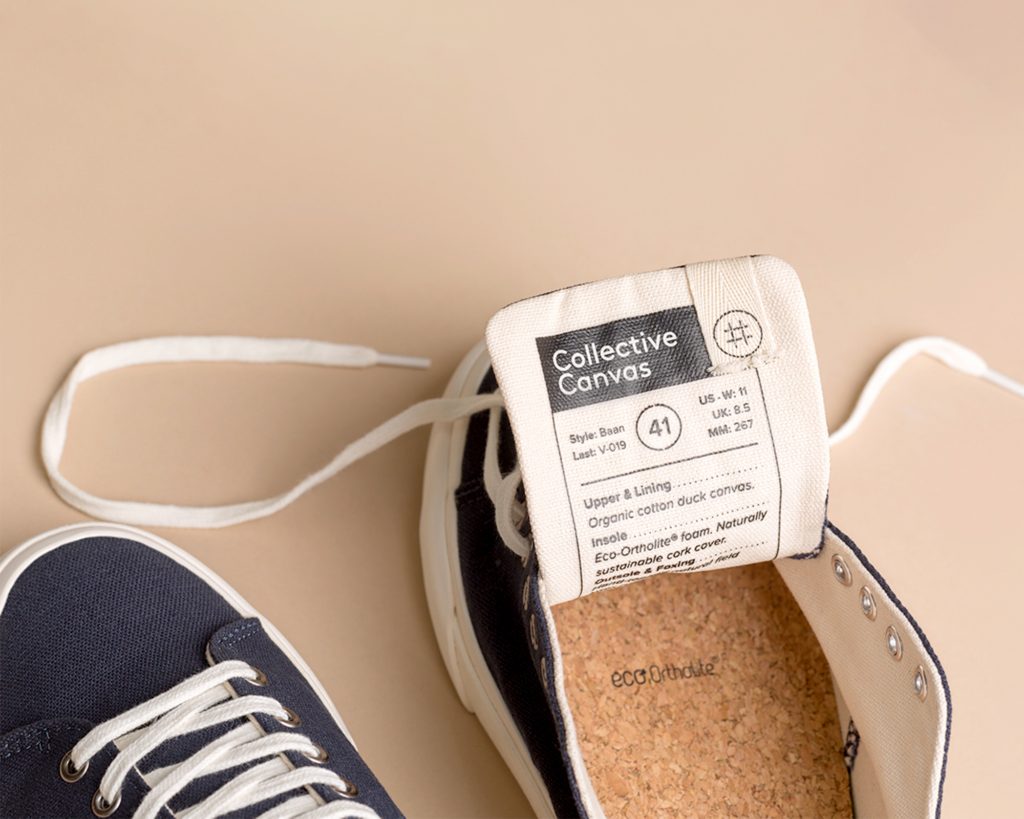
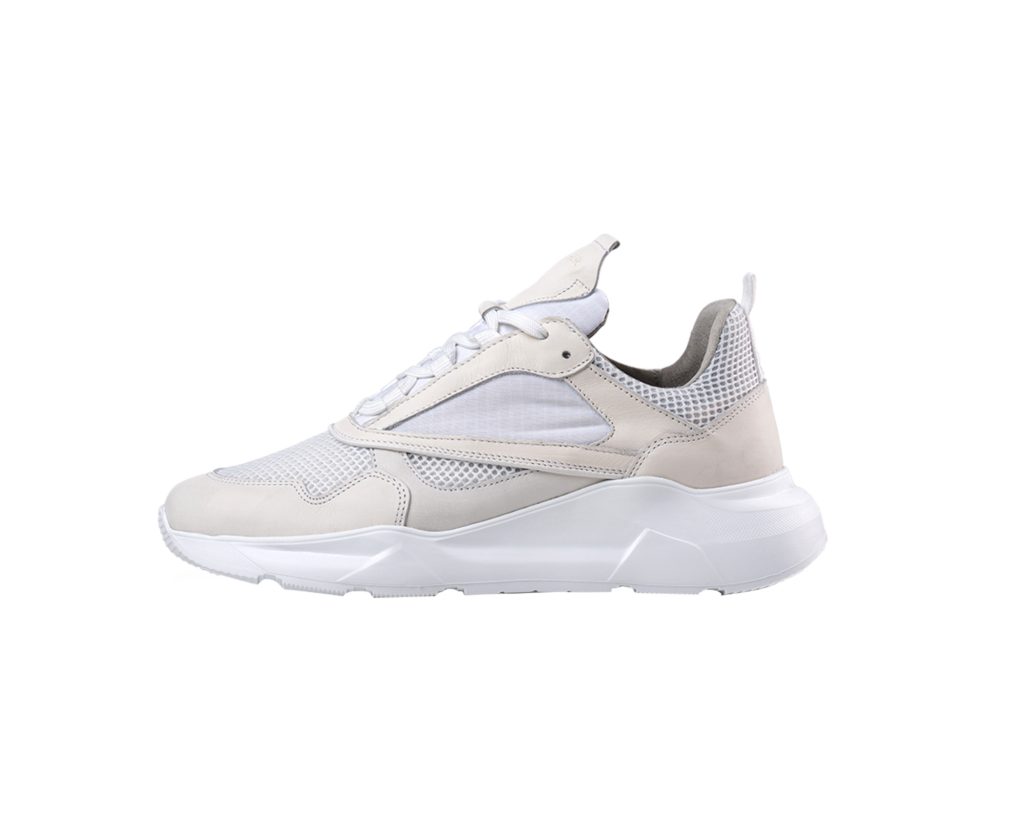
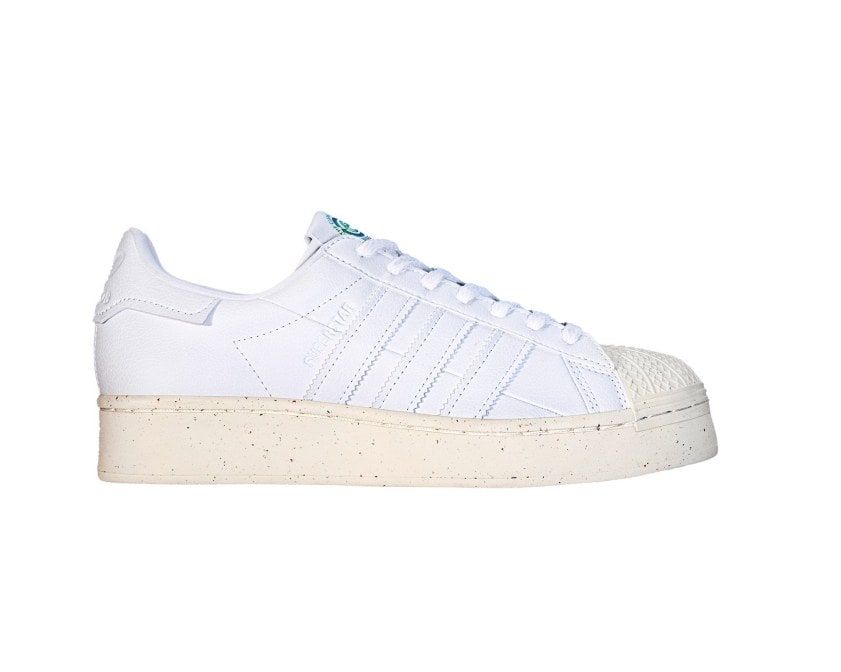
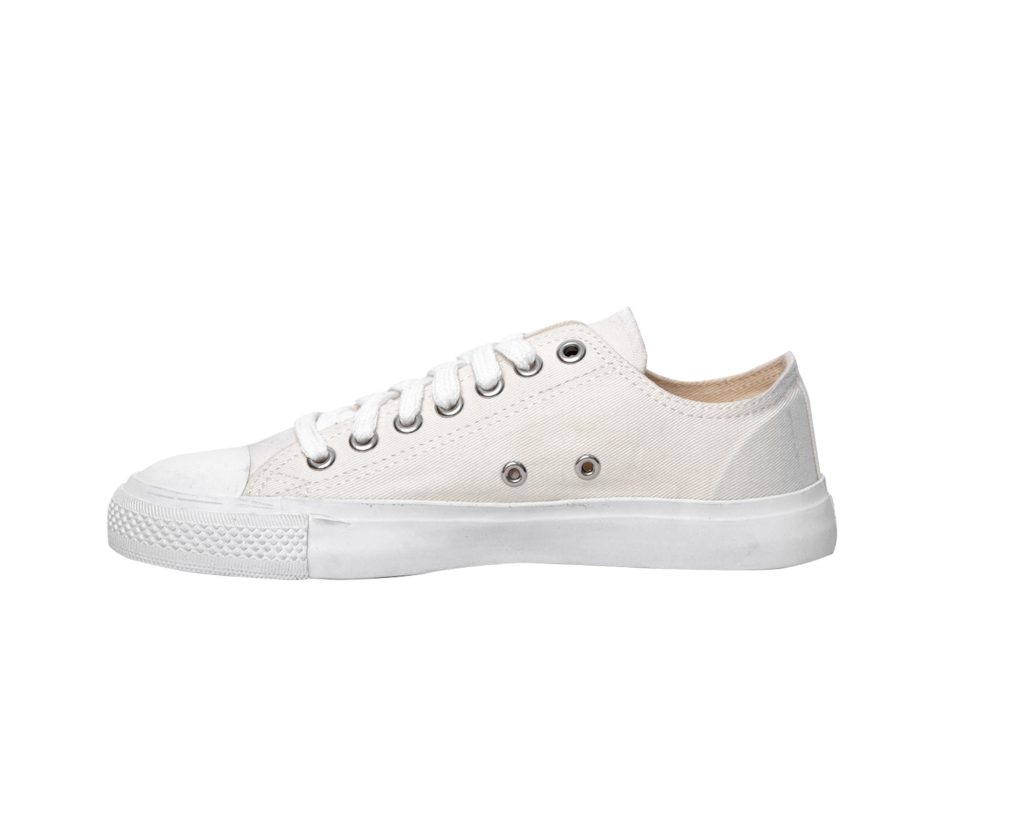
Sole search
As stylish as these sustainable sneakers are, try to purchase your shoes mindfully. Do you really need more than one pair, or a new pair every season? Can your damaged shoes be repaired instead of thrown away? If you have unwanted sneakers that are in good condition, you can donate them to a charity such as Lazy Sneakers, which distributes them to people in need.

